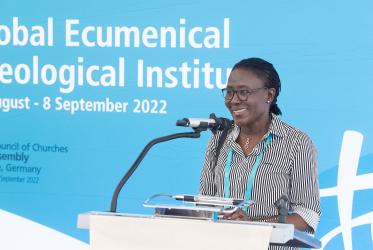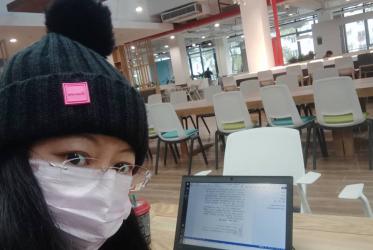Displaying 1 - 20 of 74
09 February 2024
New student body at Bossey Ecumenical Institute “a source of joy”
14 September 2020
Bossey alumni from Thailand continue their strong ties
19 August 2020
CCIA meets in Brisbane with focus on Pacific regional priorities
19 February 2020
WCC relaunches Sarah Chakko Scholarship Fund
30 January 2020
Eco-School promotes blue communities, green churches
19 November 2019
WCC Eco-School begins in Thailand
07 November 2019
WCC condemns massacre of farmers in Philippines
12 April 2019
Thursdays in Black: sharing support, transforming lives
21 February 2019
Eager ecumenists embark on new missions
04 February 2019
Paving the way for ecumenical studies, learning English in Bossey
24 September 2018












